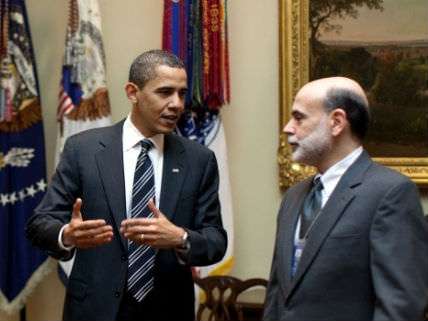Top Economists Answer: Whatever Happened to Inflation?

Since 2008, the Federal Reserve has been trying to stave off economic disaster with an unconventional monetary policy tool known as quantitative easing. By buying financial assets from commercial banks and other institutions, the Fed has massively expanded the money supply--quadrupling it since the practice began.
Many economists, particularly followers of the Austrian school, deplored the practice and predicted that the unprecedented currency and asset price manipulation would lead to huge and damaging price inflation. Reason was among them, declaring on our October 2009 cover: "Inflation Returns!"
Six years later, official consumer price index inflation sits at just 2 percent annually from July 2013 to July 2014, the latest period for which figures are available. This is identical to the rate for the previous year. We asked four economists and market analysts to revisit what they originally predicted would happen after quantitative easing and assess whether (and why) they were right.


Hide Comments (0)
Editor's Note: As of February 29, 2024, commenting privileges on reason.com posts are limited to Reason Plus subscribers. Past commenters are grandfathered in for a temporary period. Subscribe here to preserve your ability to comment. Your Reason Plus subscription also gives you an ad-free version of reason.com, along with full access to the digital edition and archives of Reason magazine. We request that comments be civil and on-topic. We do not moderate or assume any responsibility for comments, which are owned by the readers who post them. Comments do not represent the views of reason.com or Reason Foundation. We reserve the right to delete any comment and ban commenters for any reason at any time. Comments may only be edited within 5 minutes of posting. Report abuses.
Please to post comments
Mute this user?
Ban this user?
Un-ban this user?
Nuke this user?
Un-nuke this user?
Flag this comment?
Un-flag this comment?